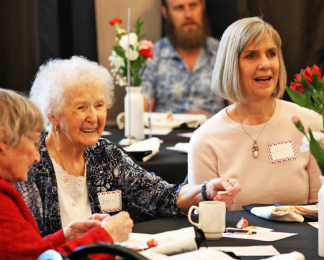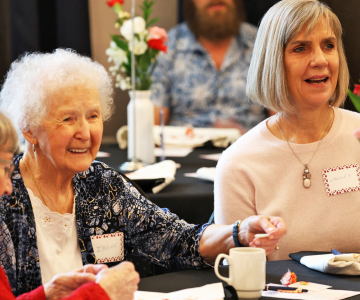Ann was in the grocery store when she could feel a sneeze coming on. “I thought, ‘Oh no. I’m going to have an accident right here in the store.’ My bladder was somewhat full, and all I could do was cross my legs.”
In her early 50s and post-menopause, the Penticton mom of four had been experiencing leaks when sneezing for some time. “I was a bit frustrated because even though I understand why I’m more prone to urine incontinence, I’m also healthy and fit, and have a strong core.”
While going to her doctor was her first choice, she also discovered Penticton is home to a pelvic health physiotherapy clinic. She booked an appointment with Sofy Tsai, a registered physiotherapist specializing in pelvic health at Interior Health and in private practice.
After seeing Sofy, Ann kept a bladder and bowel journal for a couple weeks. At her follow-up visit, Sofy was able to determine Ann didn’t have a prolapsed or overactive bladder – common reasons for urine incontinence. She also had good pelvic muscle tone.
Sofy not only taught Ann several exercises to strengthen and relax her pelvic floor, but a couple of tricks to do if she felt a sneeze coming on. She also gave Ann several take-home resources and exercises she could do on her own time. “The sneezing trick alone was a lifesaver,” laughs Ann.
“Our pelvic floor muscles are just like any other muscle in our body and can be trained,” says Sofy. “Having incontinence does not always mean you need to do Kegels. Sometimes your pelvic floor may be too tight, so strengthening it is not going to stop you from leaking. A proper evaluation by a pelvic health physiotherapist or health-care practitioner can help evaluate the root cause of your symptoms, and help you learn to regain control and confidence in your bladder and bowel function.”














